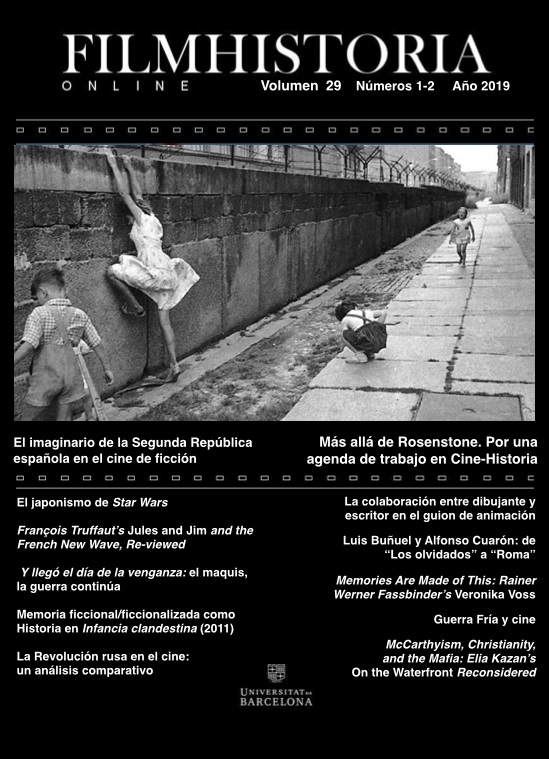McCarthyism, Christianity, and the Mafia: Elia Kazan’s On the Waterfront Reconsidered
DOI:
https://doi.org/10.1344/fh.2019.1-2.151-162Paraules clau:
On the Waterfront, Elia Kazan, McCarthyism, American communism, Christianity, organized crimeResum
Whether one sees it, finally, as a moral tale, a semi-documentary crime melodrama, a social-problem picture, a boxing film manqué, a Christian allegory, a political allegory, or a revenge fantasy, On the Waterfront has found its way into the ranks of cinema classics—where it remains, over sixty years after its initial release. This essay reconsiders the following elements in On the Waterfront: its historical context and political overtones in the McCarthyite America of the early 1950s; the movie’s thoroughgoing Christian symbolism; and the role of organized crime both inside and outside the film’s drama. In the process, the author “names names” and investigates their role in bringing this important work to fruition: Elia Kazan, Arthur Miller, Budd Schulberg, Malcolm Johnson, and Marlon Brando.Descàrregues
Publicades
2020-01-22
Número
Secció
Assajos
Llicència
L'autor/a conserva els drets. Creative Commons: Aquesta obra està subjecta a una llicència de Reconeixement-NoComercial-CompartirIgual 4.0 Internacional de Creative Commons







